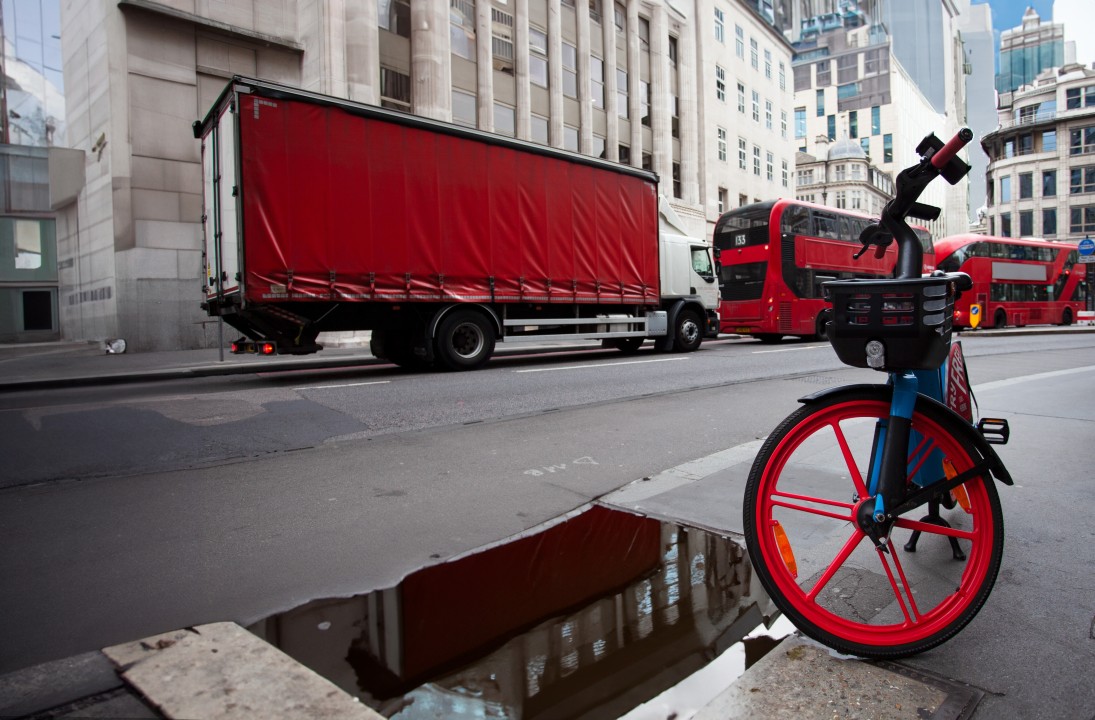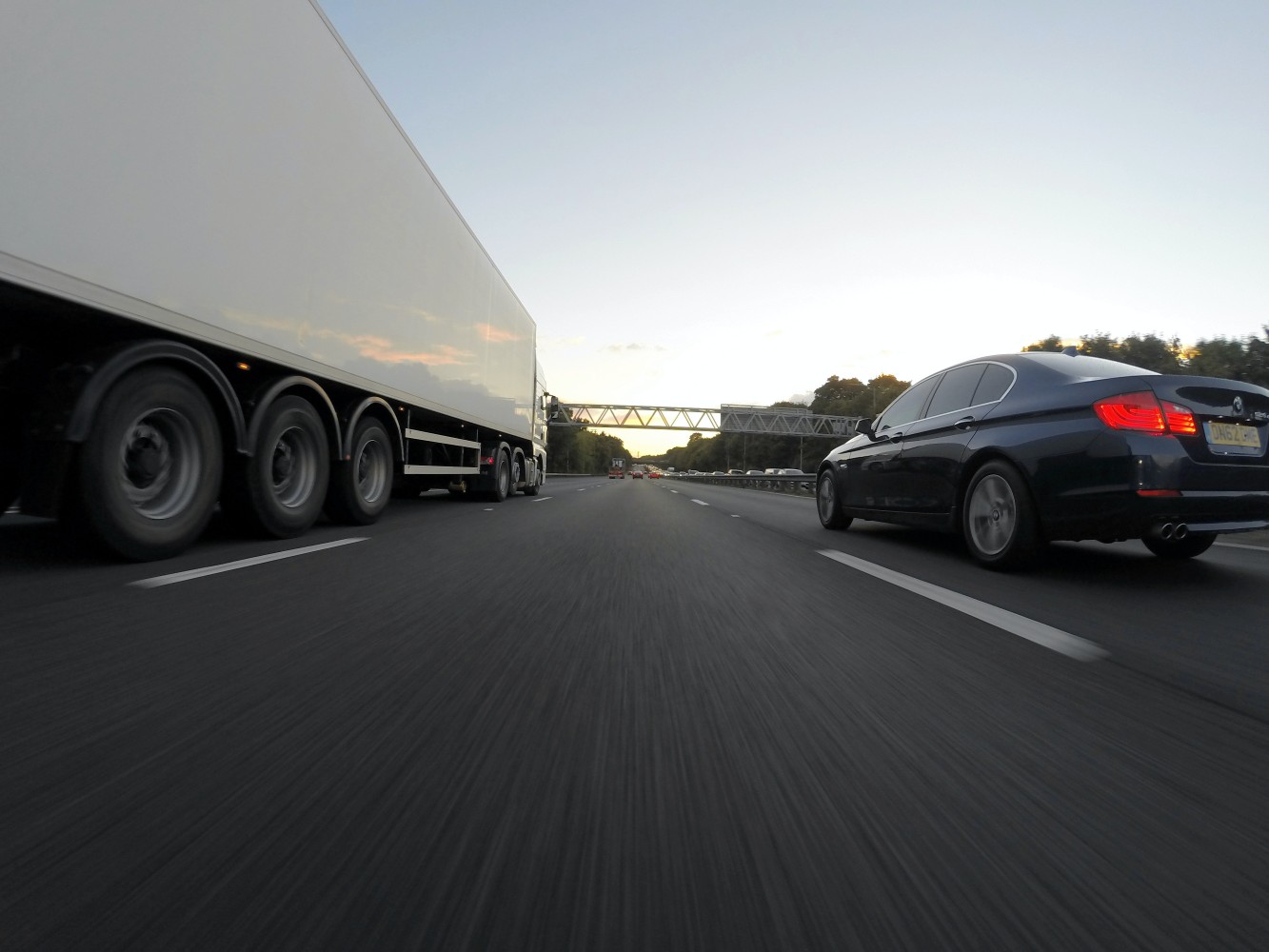
Susie Jones
Fem myter om lastbilkørsel aflivet
Oprettet: 19.08.2024
•
Opdateret: 19.08.2024
Lastbilkørsel har været rygraden i den globale handel i århundreder - med levering af varer og fornødenheder over hele verden. Men på trods af sin vigtige rolle har lastbilkørsel længe været omgærdet af myter og misforståelser.
Selv om nogle af disse myter tages med et gran salt, kan nogle skade lastbilindustrien og dem, der arbejder i den. Derfor er det vigtigt at aflive disse misforståelser for at sikre, at lastbilkørsel forbliver et attraktivt karrierevalg for fremtidige generationer. Vi spurgte vores fællesskab af chauffører på Facebook om nogle af de største myter, de har hørt i løbet af deres karriere.
1. Lastbilchauffører sidder ned hele dagen
"Alt, hvad lastbilchauffører gør, er at sidde ned hele dagen." En sætning, der ofte høres af lastbilchaufføren Luke.
Lastbilverdenen er mere end bare at køre. Lastbilchauffører arbejder ofte sammen med andre på terminaler, kajer og lagre for at af- og pålæsse gods. Bag rattet er det heller ikke altid lige let. Lastbilchauffører skal koncentrere sig om at manøvrere deres køretøjer og skal overholde strenge regler for fartskrivere. Det er vigtigt at have et godt kendskab til, hvilke områder de må og ikke må køre i, og at være opmærksom på potentielle farer.
2. Alle lastbilchauffører er mænd
Det er en forældet stereotyp, som ikke afspejler den moderne virkelighed i lastbilbranchen. På det seneste er der sket et markant skift i forholdet mellem mandlige og kvindelige lastbilchauffører. I 2021 udgjorde kvindelige chauffører kun [1 %] (https://britishtrucking.co.uk/female-truckers-in-the-uk-percentages-in-the-haulage-industry-2021/#:~:text=There%20are%20currently%20315%2C000%20registered,job%20than%20their%20male%20counterparts.) af de 315.000 lastbilchauffører i Storbritannien. Dette tal stiger dog år for år i takt med, at branchen udvikler sig og bliver mere rummelig. Chauffører som Jodi Smith er uvurderlige fortalere for kvinder i branchen. Jodi dokumenterer sine erfaringer med lastbilkørsel online og inspirerer andre til at sætte sig bag rattet.
3. Alle kan køre lastbil
Mange antager, at hvis de kan køre bil, så kan de også køre lastbil. Men lastbilkørsel kræver unikke færdigheder, som måske ikke passer til alle. At køre lastbil kræver et chaufføruddannelsesbevis (CPC). For at få et CPC skal chauffører gennemgå fem tests:
Teori
Casestudie
Off-road øvelser
Kørsel på vej
Praktiske demonstrationer
Derudover kræver lastbilkørsel en livsstil, der ikke er for alle - med lange isolerede timer på vejen, der ofte giver uventede udfordringer.
4. Bremselængde
"Bilister tror, at bremselængden for en lastbil er den samme som for en bil" er noget, som lastbilchaufføren Paul har hørt alt for mange gange.
Bremselængden for en lastbil er markant anderledes end for en bil på grund af flere faktorer: - Vægt: Den samlede vægt af en lastet lastbil vejer mere end en typisk bil, hvilket betyder, at den skal bruge mere kraft til at bremse og standse.
- Mekanik: En lastbils bremsesystem er skræddersyet til tunge laster, hvilket betyder, at de har større og mere robuste aksler og bremsekomponenter - hvilket resulterer i længere reaktionstider og større bremselængder.
Ved 100 km/t skal en lastbil bruge 132 m til at bremse sammenlignet med 73 m for en personbil - hvilket understreger vigtigheden af at have nok plads mellem sig selv og en lastbil, når man bremser kraftigt.

5. Lastbilchauffører er beskidte
I årenes løb har lastbilchauffører fået det stereotype indtryk, at de er beskidte og dovne - en uretfærdig generalisering. Mange langturschauffører tilbringer meget tid væk hjemmefra og i deres førerhuse - hvilket betyder, at deres hygiejne og renligheden af deres førerhuse er en prioritet.
Det er vigtigt at aflive de myter og misforståelser, der omgiver lastbilkørsel, for bedre at kunne forstå erhvervet. Hvis man afliver nogle af de almindelige myter, vil det skabe en mere attraktiv branche for fremtidige generationer og øge bevidstheden om lastbilkørsel som et højt kvalificeret erhverv, der spiller en vigtig rolle i vores økonomi.
Bliver lastbilkørsel ensom?
Før man overvejer en karriere som lastbilchauffør, er det vigtigt at forstå, hvad jobbet indebærer. Et problem for mange lastbilchauffører er at håndtere ensomhed - lange timer på vejen med lidt eller ingen kommunikation er svært for nogle, men en drøm for andre.
Derudover kan tid væk fra dem, man holder af, tage hårdt på mange. Men det er blevet lettere for chauffører at kommunikere med venner og familie via telefon eller videoopkald. Der er også masser af [fora] (https://epicvue.com/6-ways-you-can-handle-loneliness-as-a-truck-driver/#:~:text=Loneliness%20is%20a%20huge%20issue,the%20isolation%20on%20the%20road.) og nyttige tips til rådighed for lastbilchauffører for at lindre ensomheden.
Kan en lastbilchauffør have et ekstra job?
I takt med at Storbritannien gennemgår en leveomkostningskrise, overvejer flere chauffører at tage et ekstra job. Men bibeskæftigelse giver problemer og risici, især i lastbilverdenen. Chauffører skal overveje, om der er en politik for bibeskæftigelse i deres virksomhed, før de går videre.
Når virksomheder og operatører udarbejder en politik for sekundær beskæftigelse, bør de overveje konsekvenserne for chaufførernes præstationer, fremmøde og træthed. For ikke at nævne overholdelse af chaufførernes arbejdstid og arbejdstidsregler.


